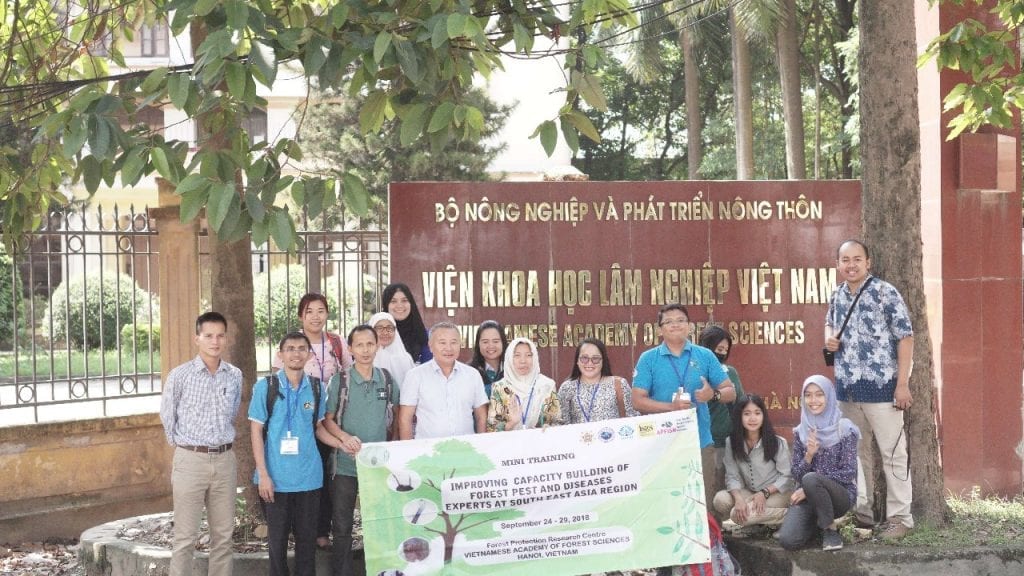
Non-native fast-growing forest tree species plantations have expanded rapidly in the South East Asia (SEA). Longer rotations have been accompanied by the emergence of new pests, diseases and new host-pest combinations that has never been seen before. New pest and disease problems have also emerged in areas that were previously free from such pests and diseases. Since the pest and diseases in planted forest of SEA countries are increasing both in number and severity, cooperation and collaboration between researchers and managers among the SEA countries is essential to mitigate the impacts of pest and disease. However, the number and expertise level of forest pathologists in SEA is limited. Thus this mini training aims to improve the capability SEA pathologist expert through capacity building and forming an informal group of SEA pest and disease experts.
Dr. Sri Rahayu from the laboratory of Forest Protection, Department of Silviculture Faculty of Forestry UGM collaborated with Professor Pham Quang Thu, Vietnamese forest pathologist conducted mini training for 15 participants from Thailand, Malaysia, Indonesia and Vietnam. The mini training was financially support by international sponsors (APAFRI and FAO) and conducted during September, 24 – 29, 2018.
The activities of the training consisting field identification and collection of Phytophtora and Ceratocystis, also recognize their sign and symptom. The field observations were in the Tram Kiem Lam MuiXe National Park, Sapa (approximately 800 km from Hanoi), and a community forest near the highway in Lao Cai Region, Vietnam. Isolation training on Pythoptora and Ceratocystis using water-baiting and carrot-baiting techniques and later made a pure culture from those fungus. The trainers also introduced various baiting and isolations techniques for different type of fungus i.eCalonectria into the artificial media in the following day. Furthermore, the participants also learnt about DNA extraction at the Laboratory.
During the final session and closing of the mini training, all the participants committed to develop further collaboration on research and information exchange in the field of forests pests and diseases managements in the tropics. The next training is planned to be held in Thailand or Indonesia.
